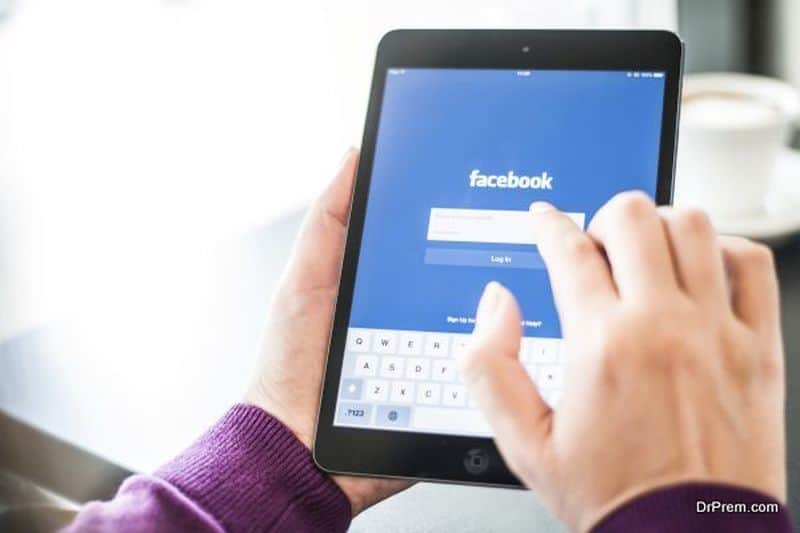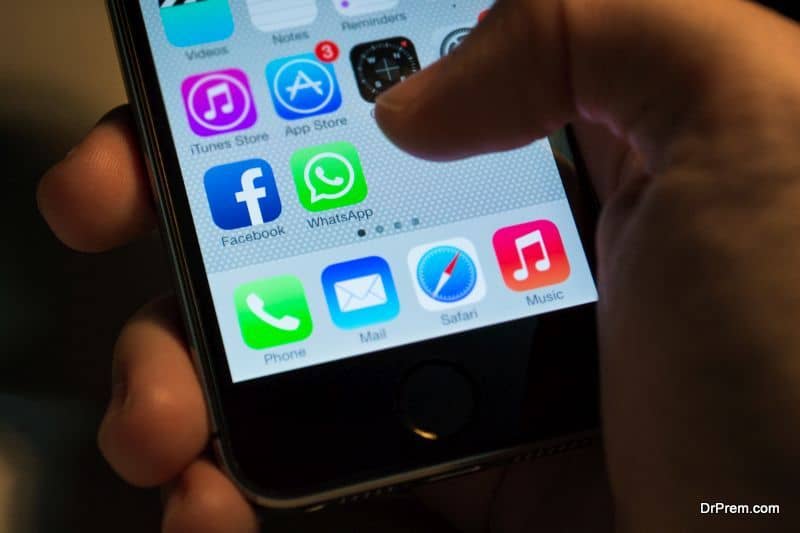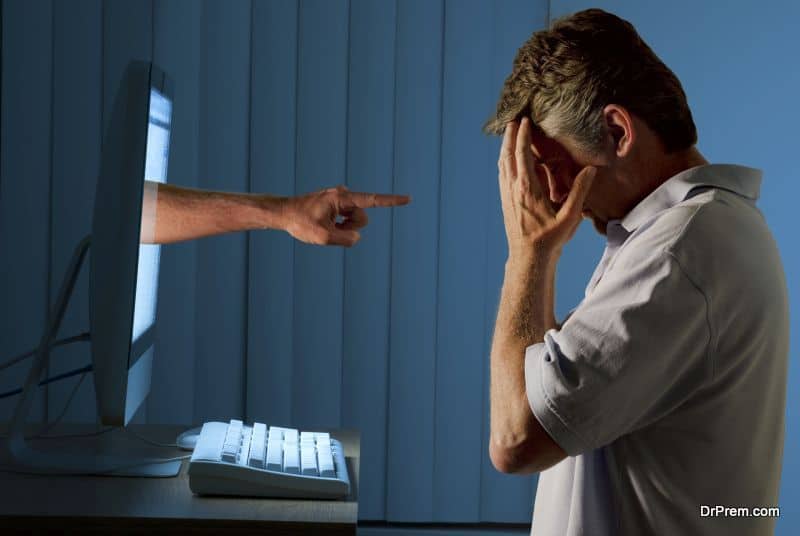Human nature by default is dominated by narcissism, defining self worth and seeking social validation of varying degrees. By default, our brains are tuned towards social approval. A study reported by Harvard in 2002 revealed that humans invest 40% of the time to self-disclosure and derive immense pleasure almost equivalent to having good food or enjoying sex!
Social media platforms have heightened this pleasure of self-disclosure to such a level that acceptance from this media, which seldom adds any value to life, has become immensely valuable. This is affecting our mood and lifestyle choices in a big way.
Social network sharing that allows endless displaying of everything from looks to luxury, the craving for unnecessary social attention has been rising tremendously causing attention-addiction syndrome, which is detrimental to psychological health.
The present generation is using the digital social media primarily as self-promoting platforms through glossy pics and emoted posts to catch the attention of others within seconds. This growing craze has revealed the following traits of the sharers worth considering:
- Anxious and insecure people spend more time in seeking Facebook feedback through likes and comments.
- They are mostly engaged in frequent posting of status of every simple activity and check for likes and comments.
- They are in constant attention-seeking spree nurturing a fear of rejection.
- Those with higher attachment insecurity are more feedback sensitive compared to the secured class.
Looking few decades back, we would see that this rampant self-promotion never existed. If at all it existed was quite justified but the avenues were different and efforts enormous. The need to advertise or exhibit simple events of life unless there was a good cause was never felt.
Why this hankering in social attention-seeking?
Attention seeking is a behavior that elicits attention for instant self gratification. It is the heartening feeling of the user to be in the limelight even if it is momentary. While this momentary pleasure may be seemingly harmless, the constant craving for social attention may give rise to new problems or surface the preexisting ones.
The reasons can be:
- A constant feeling of negligence.
- Not receiving due attention from parents, partners or peers.
- Jealousy
- Lack of self esteem and confidence
- Narcissism
High self-obsession:
The present generation is more obsessed with own self nurturing unrealistic expectations. They consider high self-belief the only way to achievement undermining the value of self-knowledge and humility.
The gap between their ambition and aspiration widens. They continue to dwell amidst a hope that their self-perceived talents would be discovered soon where all expectations would turn into reality even if their efforts are not up to the mark.
Therefore, they may be hyper-connected through social networking but seldom display any interest about others except considering them as the audience. Their main objective often lies in self-broadcasting even if it entails to collecting disposable friends or engaging in sharing inappropriate content with strangers.
Selfie Obsession – Another dangerous trend:
It is the offshoot of self-obsession leading to dangerous consequences. Psychologists have observed a rise in narcissism, self objectification, insecurity, over-addiction, damaged friendships, depression and body dysmorphic disorder with this growing trend of selfie posting.
- 55% of millennial has shared at least one selfie on social media
- 74% of images shared on snapchat are selfies
- Selfies often do NOT present true images. 48% doctor their images to heighten online social acceptability and satisfy self ego.
- Teens spend about 7 full working days every year by clicking selfies.
- Selfie obsession is boosting the plastic surgery industry as many are keen to enhance their self image to grab more attention.
- More people died in 2015 from clicking selfie than shark attacks. Dangerous poses in selfie fetches lot of fake online admiration for which people are unnecessarily risking their lives.
- A case report highlights an attempted suicide by a British teenager as he was unable to find the suitable pose and light to take a striking selfie! [nobullying.com]
- A couple of months back, a 17-year old boy got drowned in a temple tank in Bengaluru, India, a country that accounts for 50% deaths caused by selfie. When the boy was struggling to remain afloat, his friends were busy clicking selfie and nobody noticed his danger!
The Thai Government Psychiatrist Dr. Panpimol Wipulakorn warned about the dangerous consequences of selfie craze sensing the risk of destabilization of the society by the generation failing to gain social media approval. Their continuous selfie posting efforts to seek attention may be detrimental to the formation of a strong leadership in the country.
Addiction to instant gratification:
It is almost leading a life counting on other’s Likes. When you share a post or picture, the immediate likes and comments that you receive gives an instant gratification which is addictive.
While there is no harm in feeling good in this virtual social acceptance, it would be harmful if you feel unacceptable or not up to the desired standard if one/two of your posts/pictures fail to get the desired likes or comments.
Assessing self-worth through other’s eyes:
An academic degree or certificate from an authorized body can certify the knowledge or skill levels of a person to some extent but not in entirety. So how could few people with varying degrees of perception and opinions assess one’s worth just by giving likes or comments on social media posts? But the irony is most people are considering these as important validations.
The young generation grossly misses out this important factor as they constantly seek a social validation through social media sharing. They nurture a fear of rejection and start placing a lot of value on these social media approvals. Even they too ‘like’ certain dislikable things only to secure the future counts of ‘likes’, a fall in which seems to make their life doomed forever!
Lavishness is looked upon as the best way to lead the life:
Lavishness seems to be predominant in each and everyone’s life. Thanks to the continuous upgradation of lifestyle and increasing earning potential of the millennials by which the lavish portrayal of life could be displayed on social media to such an extent. But seldom one gets to know the person in real.
Day in day out fight is everybody’s part of life but none shares those stories which could have been inspiring and had a beneficial effect. Sharing a glossy lifestyle only ignites an unhealthy competition of self- portrayal driving more people towards seeking unnecessary virtual attention.
A continuous pressure to prove oneself and convince others:
It is some sort a reflection of the unhealthy rat race that the present generation is being continually pushed through. Attention-seekers also give a vehement try to show that they too stand out in the crowd. A continuous fight prevails in their mind with unnecessary complexities shrouding their thought process.
They try to convince their friends and acquaintances about their near-to-perfect life which in reality is not in most cases. This may ignite a feeling of envy among others forcing them to go for a much better attention-grabbing post triggering a chain of impulsive outbursts which may not surface in these online platforms but are harshly felt in real life.
Sharing is not always seeking social attention:
Sharing some great moments (also the bad ones) of life on social media does no harm. At times, timely support from a friend can be really helpful. But over-sharing riding on a false sense of over-confidence and self-consciousness are accompanied by bigger issues, which ultimately affects the lives of the users. It then becomes crying for attention or exhibiting narcissism where the ultimate objective of social networking gets lost.
Social media has ushered in a unique dynamic mode of communication, which is the fastest of all preexisting modes. While this has brought in a lot of benefits, its negativities are concerning enough which need to be considered as well. Clinical psychologists highlight a strong correlation between various aspects of self-esteem and self-worth and the online behavior. More people try to mask their own self, prolonged social media interactions reveals a lot about their personality and behavior.













